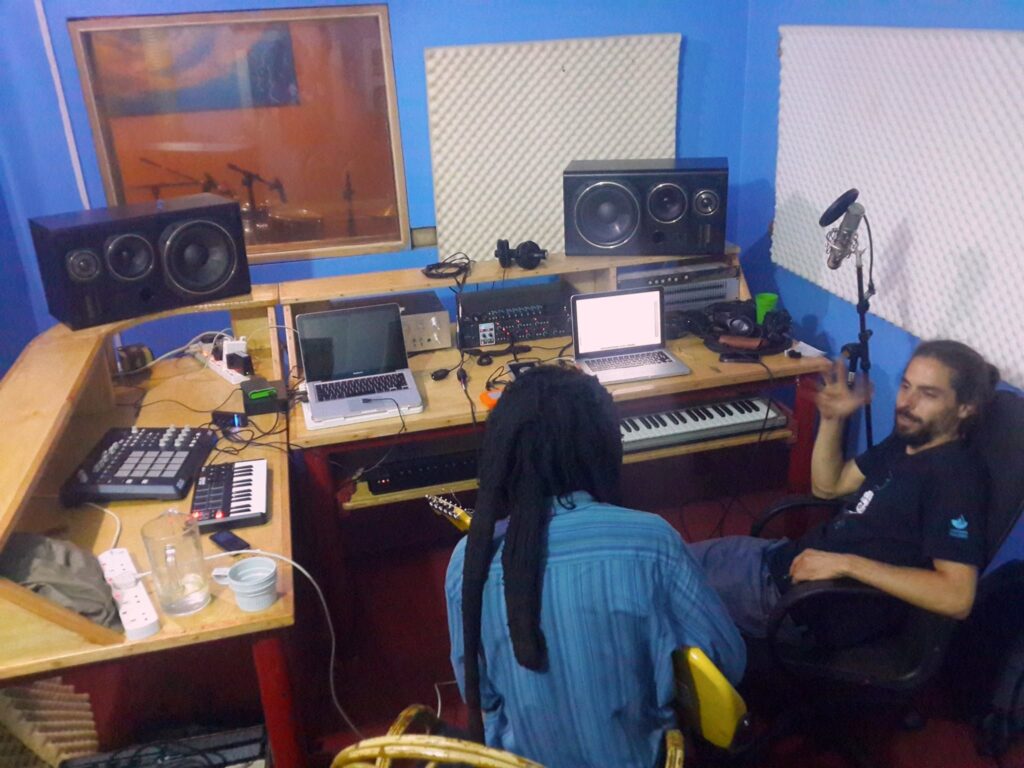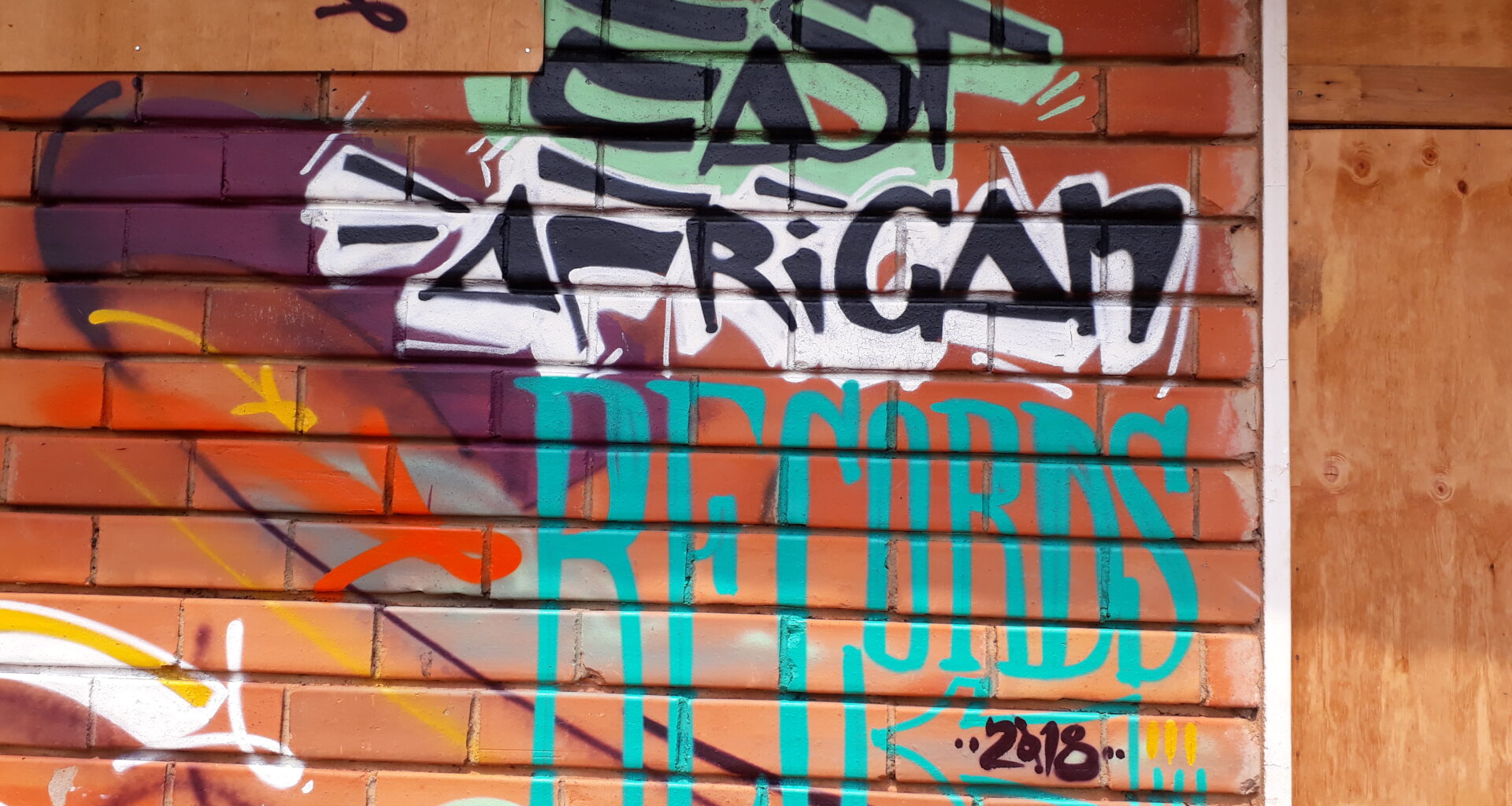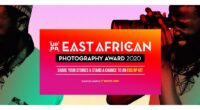By Alex Roberts
You’ve definitely heard this kind of bullshit before: ‘the East African music industry just can’t measure up against international competition.’
The idea, absurd though it is, is a common one, especially within East Africa itself- with local acts being frequently eschewed for established names from the international sphere, regardless of actual musical talent. This is one factor within a situation that has long been ‘the way of things’, and relegated musicians of East Africa to a tertiary position within their own region. Luckily, the winds have been shifting in the last several years, and one organization that’s at the forefront of moving the ball forward is East African Records (EAR).
They’re a music distributor, yes, but before all the musicians reading this piece slam close their laptops and pour a double gin whilst rolling their eyes severely- EAR is on a vastly different trip, establishing themselves firmly as more than a label, an organization that encourages rather than suppresses and seeks to ensure that artists are paid equitably for their efforts.

Being the well known haters that we are here at the EA Scene, you can rest assured that we vetted the last aspect thoroughly, having known of horror stories into the hundreds of variable fuckery (like musicians being told that they should be grateful for less than 1%). In this aspect EAR is the real deal- not holding artists back by some heavy-handed financial agreement, while simultaneously seeking not to limit in any artistic sense.
That’s the aim of EAR- establishing themselves as in the leading East African music distributor. When you add in that EAR is seeking to promote regional acts to the international audience more, across platforms while keeping every aspect local- it might be tempting to write them off as biting off more than they can chew; throwing their hats into too many rings and leaving old-guard sentiments that worked for Western acts of the 1980s by the wayside. And yes, that mention of the West was a loaded one, as the industry has been plagued by foreign vultures, swooping in with tones of condescension and overtones of overt theft. It is better sometimes to reinvent the wheel at a local level.
That’s exactly the point though, why not aim high? Is there not an alley within this industry to both have one’s cake and eat it with a bit of a cheeky middle finger up? Isn’t it about time that artists gets to have an ‘I told you so’ in their column?
So, as most musicians who aren’t already affiliated with EAR reading this are currently calling bullshit, let’s talk a bit of specifics as to how their model works.
First and foremost, their’s is a policy of artist knows best, not ‘random marketing director knows better because of image‘. Collaboration means more of a guiding hand than a determinant one, seeking to encourage rather than suppress. As EAR Director David Cecil says of their approach: “We don’t curate content at all – if an artist or label has a well-produced track, we will release it. There are no gatekeepers. And if you have a promotion strategy, we will work with you to implement it. So we might be less involved than a label, but we’re fully flexible and we don’t tell you what you can or can’t release. And we’re much more involved than a normal distributor, especially where an artist has determination and unique talent – that’s where we start really acting like a label.”
They’ve been at it for the last several years- from the label’s HQ in Kampala they’ve been steadily making inroads partnering with artists and labels, releasing content, growing relationships, holding concert series’ and building up international networks.
One of the primary means of going about this has been for EAR to form a partnership with Ditto Records, a leading establishment of music distribution worldwide. This helps to ensure that not only will the tracks get out to a larger audience, but will be done so with the right tagging, copyright information and credits included across platforms- while having a fallback to help combat piracy and other forms of infringement, which can translate into legal protection if an artist distributing through EAR gets ripped off.
Cecil can better sum up their model than we can: “On top of the basic distribution, we provide label-type services: we link you to talented, affordable videographers and photographers; we pitch content to the streaming platforms to guide content to the right playlists; we write press releases and profiles; we fix copyright and profile issues on streaming and social media platforms; we work on development and implementation of promotion strategies for releases; we have an international network of DJs and media who promote our releases; we organise publishing and synchronization deals for our artists; we organise live shows, platforming the artists live in the region and even abroad.”
It could be argued that the very core of the issues that have plagued the East African music industry is a lack of 360 support for artists- once a service is done, hands are off entirely. If you hit an issue, it has in the past come with a heaping helping of ‘tough shit, that’s your problem.’
That’s the essence of why East African Records is taking such a different tact, playing the long game of artists growing organically, on their own terms. What’s good for the artist is good for the scene, is good for EAR. In simplistic terms, theirs is an approach of ‘artist knows best’.
What is becoming more clear is that East African music is ripe for explosion in popularity both internally and onto the international stage- the last decade or so has shown that the appetite for African music is becoming voracious. In ten years, there will be a lot of major labels coming around, hat in one hand, unfair contracts in the other- so why even give the possibility of leverage to them? That’s the core tenet of East African Records- that playing the long game can benefit everyone, that artist and distributor are intertwined and not diametrically opposed.
The old guard were wrong all along- they believed more in hoarding every shilling to themselves instead of having to pay that pesky talent. It’s about time that a local music distributor is ignoring them, planting their own flag in mutually profitable defiance.
If you’d like to know more or are interested in collaborating with EAR look them up at: contact@eastafricanrecords.com










